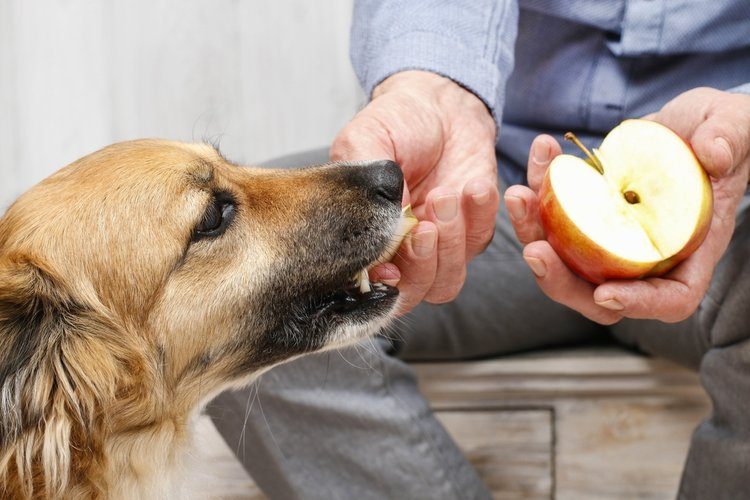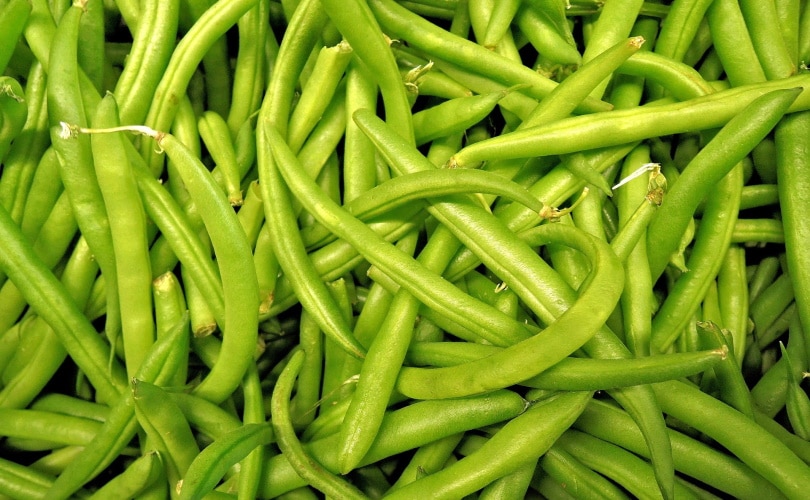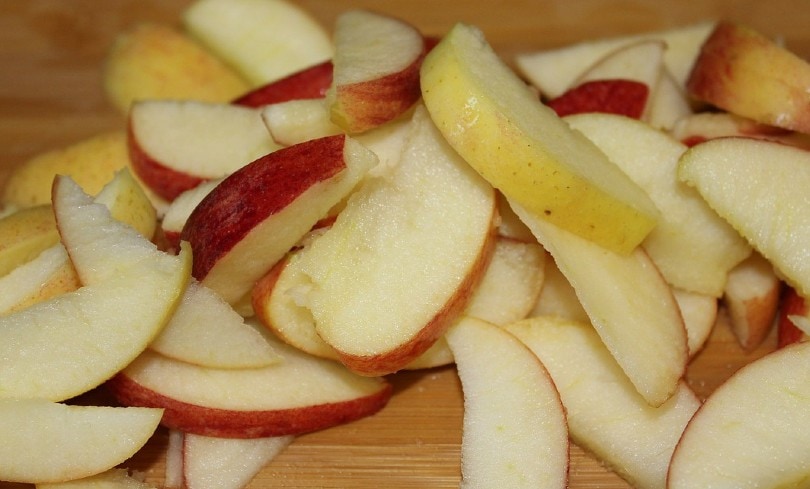
Although fiber is not considered an essential nutrient because it cannot be digested, it is an essential component of a dog’s diet that plays a very important role in the digestive system’s health. Although most dog food has some form of fiber, some dogs don’t have enough in their diets and need a little boost. Thankfully, there are many great sources of fiber, both soluble and insoluble. If you’re looking for ways to sneak some extra fiber into your dog’s daily meals, here are six great sources to try:
The 6 Great Sources of Fiber for Dogs
1. Pumpkin Pulp

| Source: | Natural |
| Fiber Type: | Soluble, Insoluble |
Pumpkin Pulp is one of the best sources of dietary fiber for dogs, cats, and also humans. It’s rich in flavor that most dogs enjoy, making it easy to incorporate into your dog’s diet. Pumpkin is a superfood that is nutrient-dense and low in calories, which is why it’s arguably the most popular natural source of fiber. Make sure that you are buying organic canned pumpkin pulp and not pumpkin pie filling. Pumpkin pie filling has little to no nutritional value and is loaded with sugar.
2. Green Beans

| Source: | Natural |
| Fiber Type: | Soluble, Insoluble |
*NOTE: This is to supplement your dog’s food for fiber, not the Green Bean Diet for overweight dogs.*
One of the healthiest ways to add fiber to your dog’s diet, green beans are affordable, natural, and low in calories. They also contain other essential nutrients your dog needs, like vitamin C, Iron, and vitamins B1, B3, and B6. Green beans are also a great alternative to treats if you’re looking to swap out the biscuits instead. Dogs can eat cooked, raw, and canned green beans, so you can choose the option that your dog likes the most. Avoid green beans cooked in oils, butter, spices, and salt to avoid potential health problems.
3. Ground Flaxseed

| Source: | Natural, Processed |
| Fiber Type: | Soluble, Insoluble |
*NOTE: Consult with your veterinarian first before adding flaxseed to your dog’s diet, especially dogs with thyroid, heart, and diabetic conditions.
A powerful superfood, ground flaxseed can be a total game-changer for your dog’s diet. Rich in dietary fiber, ground flaxseed also contains other vitamins and minerals to help keep your dog healthy and active. It can also help your dog’s skin and coat due to the naturally-occurring omega-3 and omega-6 fatty acids. Although coming from the same plant, flaxseed oil is not as fiber-dense as ground flaxseed. Never feed your dog raw or unprocessed flaxseed- always buy organic, processed flaxseed meal to prevent potential health issues.
4. Apples

| Source: | Natural |
| Fiber Type: | Soluble(fruit), Insoluble(skin) |
Crisp in taste and refreshingly juicy, apples are another great source of fiber for dogs. They’re low in fat and high in fiber, containing over 4 grams of dietary fiber in one medium-sized apple. Apples are nutrient-dense fruits that can add additional benefits for your dog as well, but they’re also a high-sugar food that may not be the best option for dogs with thyroid, obesity, and diabetic issues. Look for organic apples to lessen the number of pesticides your dog ingests.
5. Wheat Germ

| Source: | Natural, Processed |
| Fiber Type: | Insoluble |
A great source of insoluble fiber, wheat germ is another nutrient-heavy grain product with great health benefits. The name refers to the reproductive part of the seed of the wheat plant that helps create new wheat plants, a natural by-product of grain mills after processing wheat. It also contains magnesium and phosphorous, which are also important for a balanced diet. Wheat germ is also a great alternative to ground flaxseed meal if it’s too strong for your dog’s digestive system.
6. Zesty Paws Core Elements Probiotic Soft Chews Digestive Supplement for Dogs
| Source: | Supplement |
| Fiber Type: | Soluble/Insoluble |
Zesty Paws Core Digestive Supplement chews are soft-chew supplements that contain pumpkin and flaxseed, two great natural sources of fiber in one small chewable pill. These chews also have probiotics and other nutrients to support overall gut health, which can help regulate your dog’s digestive system. If pumpkin alone isn’t working, the Zesty Paws Digestive chews may be a better alternative for your dog. Consult with your veterinarian before starting any new supplements first.
Fiber: Why Is It Important for Dogs?
Fiber is a very important component of a dog’s diet. It is crucial for healthy digestion. It helps bulking and to pass the stool in dogs and humans alike. Moreover, some kinds of fiber are prebiotics, which means that they help feed and maintain the “good bacteria” of the digestive system.
Although most dog foods contain fiber, some recipes simply don’t offer enough to benefit your dog. Dogs that have a fiber deficiency usually have either very loose, liquid-like stool or multiple bouts of constipation, but your veterinarian is the best bet for a true deficiency diagnosis.
Fiber comes in two forms: soluble and insoluble fiber. Soluble fiber dissolves in water or liquid, turning into a gel-like substance in the colon that slows down and helps regulate digestion. Insoluble fiber does not dissolve at all, but it actually helps bulk and aids in passing the stool. Both forms of fiber are important for normal digestion and gut health, so it’s important that your dog consumes them regularly.
How Much Fiber Does My Dog Need?
Dogs of all shapes and sizes need fiber, but the amount will depend on your dog’s size and how much fiber is in the diet already. A healthy diet should consist of around 2-4% dietary fiber, though 5% may be necessary for dogs who struggle with digestive issues. Again, it’s crucial to talk to your vet about diet and nutrition, especially if you plan on adding fiber to your dog’s diet.
Natural Sources vs Supplements
Fiber is easy to obtain through natural sources like grains and fruits, but it may not be enough for your dog’s specific needs. The topic of natural versus supplement is a hot debate in the pet industry. While natural sources of fiber are great on their own, supplements can benefit your dog’s health. When it comes to supplements for your dog, we highly recommend talking to a veterinarian with a focus on nutrition. Every dog has its own dietary needs, so it’s best to ask your vet and do what’s best for your dog.
Conclusion
Dietary fiber plays an important role in gut health and dog nutrition, but not all dog food contains enough to provide those benefits. There are plenty of ways to add extra fiber while also providing your dog with other potential health benefits. As long as you watch for signs of indigestion and don’t overload your dog’s system with too much fiber, your dog may benefit from a boost of fiber.
See Also:
- 5 Essential Nutrients Your Dog Needs to Thrive
- 5 Best Sources of Iron for Dogs (& How Much They Need Daily)
Featured Image Credit: Agnes Kantaruk, Shutterstock









